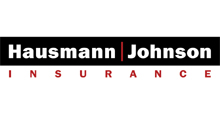“Why Am I Getting This Bill From My Provider?” Helping Employees Understand & Respond to Unexpected Balance Billing
By Becky Boggio, Client Service Specialist With increasing frequency we find that the employees enrolled in our group health insurance plans are getting a shock when they open their mail. They are unexpectedly receiving bills for hundreds, if not thousands of dollars for health care that they THOUGHT was in network and pre-approved.
They are getting balanced billed.
First, let’s explain why this happens: Occasionally, providers generate invoices for amounts that the insurance carrier did not pay in full. These invoices typically occur randomly or not in a time-frame consistent with the date of service (i.e. several months after service has occurred). This practice is referred to as balance billing.
There are different reasons that balance billing occurs. Some examples are:
With increasing frequency we find that the employees enrolled in our group health insurance plans are getting a shock when they open their mail. They are unexpectedly receiving bills for hundreds, if not thousands of dollars for health care that they THOUGHT was in network and pre-approved.
They are getting balanced billed.
First, let’s explain why this happens: Occasionally, providers generate invoices for amounts that the insurance carrier did not pay in full. These invoices typically occur randomly or not in a time-frame consistent with the date of service (i.e. several months after service has occurred). This practice is referred to as balance billing.
There are different reasons that balance billing occurs. Some examples are:
- Provider charges a higher amount for service incurred than is agreed upon with the carrier (allowed amount) and the provider bills for the amount not covered.
- Provider that performed the service is out-of-network. This is very common in situations where services were incurred in an emergency room (ER) and doctors or radiologists are not normal staff of the ER but are part of a group contracted to provide services.
It is frightening and upsetting to employees. But hopefully they turn to you for help! So, what should you advise your employee if they receive a bill that seems out of the ordinary?
First, tell them DO NOT PAY the invoice until the below steps have been exhausted:
Verify that the charges were submitted to your medical insurance carrier. Sometimes these random charges have not been submitted as they will come from a provider group that does not have your employee’s patient insurance information on file. This is because they are not employees of the facility where serviced happened. The invoice will come from a separate company, not the name of the facility where services were received (i.e. a physician’s group or radiology group instead of the name of the actual hospital). In this case, contact the invoicing company and provide them with your medical insurance information and ask them to submit a claim to your medical insurance carrier.
If they WERE submitted to your medical insurance carrier, determine why medical insurance carrier didn’t pay. The Explanation of Benefits (EOB) should reflect this reason.
If charges for a physician’s group or radiology group were processed as out of network by the medical insurance carrier, immediately begin the appeal process with the medical insurance carrier. If the facility was in-network, you did your due diligence to seek services. You, as a consumer, do not get the choice to pick the doctors/groups staffed, to ensure they are in-network. This is especially the case if the patient was unable to make proactive decisions regarding the medical care they were receiving due to their condition.
If charges were processed but were more than allowed by the medical insurance carrier, begin an appeal with the provider billing office advising your medical coverage only paid a certain amount based on their contract with the provider and state that you will not make further payments. This one is a little harder to win but is still worth trying.
If you still do not feel that you are responsible for the charges always call the medical insurance carrier and/or the provider’s billing office to discuss and ask for an explanation. Contacting the provider is especially important as it shows “good faith” on your part that you acknowledge the invoice and want to work on resolving it. Keep detailed notes of all of your calls. Document who you spoke with and what was discussed. Many times appeals will need to be made in writing. Keep copies of those letters and ensure that they are mailed on a timely basis.
If you ultimately ARE found to be financially responsible for the balance bill, ask about a payment plan. Most provider’s offer them and it may help lessen the financial burden.
Medical care is expensive and often unpleasant. Many employees assume the doctor is right and they have done something wrong when unexpected bills are received. Help raise your employee’s awareness that they must advocate for themselves. They should keep in mind that they should always question billings that they don’t understand. After all, they are the customer!



 This post is locked to comments.
This post is locked to comments.
